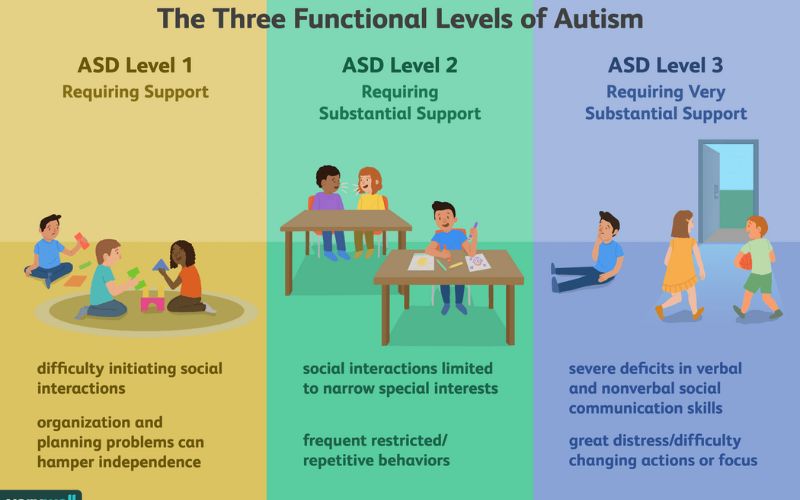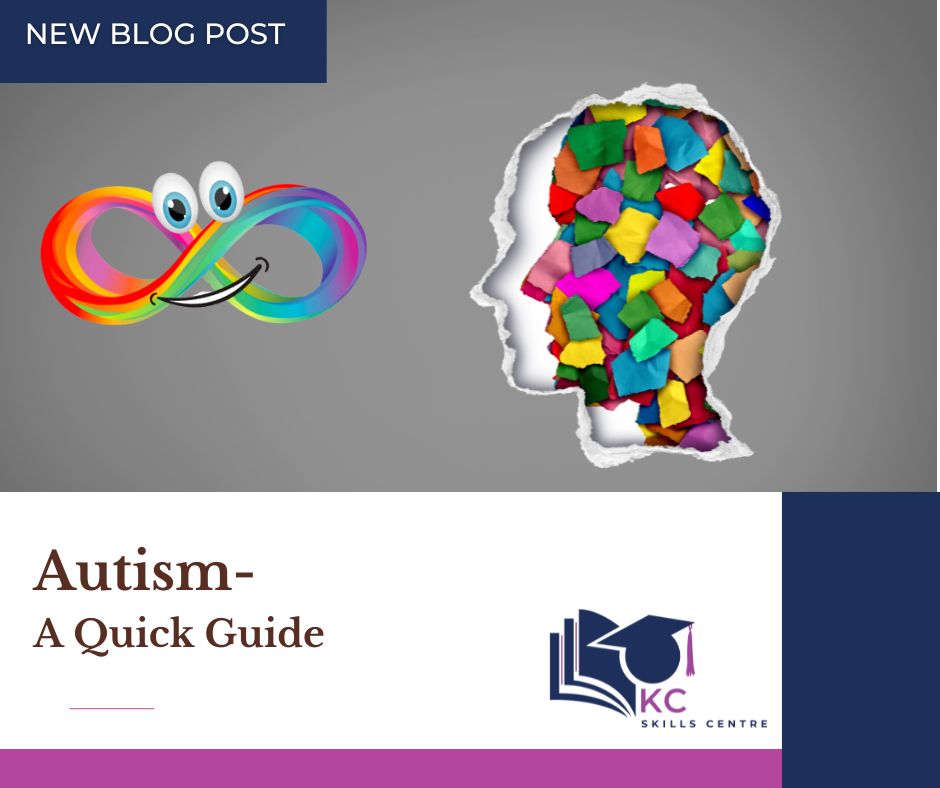As a trainer at Skills Centre Australia, I am privileged to conduct Autism Care training.
I want to provide a quick guide on Autism Care, including symptoms, risk factors, diagnosis, causes, treatment, and support, to give a bit of an insight into the class I teach at the Skills Centre and how useful it can be to all personal and professional carers of those living with Autism.
Autism Spectrum Disorder (also known as ASD) is a neurological disorder that affects individuals in various ways. There are challenges in social interactions, communication, and repetitive behaviours, to name a few. Autism affects people from all races, ethnicities, and a variety of backgrounds.

Signs and Symptoms of Autism:
The common symptoms of Autism can include difficulties in social interactions, repetitive behaviours, sensory sensitivities, delayed development in age-appropriate milestones or a speech delay.
Causes and Risk Factors of Autism:
While a definitive cause of Autism is still unknown, some studies have proven known risk factors. These can include genetic and environmental factors.
People with certain genetic disorders, such as fragile X syndrome, tuberous sclerosis, and Down syndrome, are more likely to have ASD.
Research has found seven potential genes thought to increase the risk of Autism: PLEKHA8, PRR25, FBXL13, VPS54, SLFN5, SNCAIP, and TGM1. There is a strong genetic component and an estimated 70–90% estimated heritability. ASD is common, and it is diagnosed in approximately 1.6% of the population, with a 4:1 male-to-female ratio.
Environmental risk factors for Autism include being born prematurely, soon after an older sibling or to a mother with diabetes, for example. Over the past 15 years, scientists have investigated many of these factors to determine how they may contribute to Autism. But there’s still little definitive information.
It is vital to emphasise that vaccines do not cause Autism, as this misconception was debunked by scientific evidence many times over.
How to identify someone with ASD:
Some common signs of Autism could include struggling to maintain eye contact, obsessive routines, fixations, patterns, and or behaviours, and disruption to changes in their routine or environment.
Sometimes, but not always, people are aggressive to others or themselves when distressed. They may not understand physical boundaries or be nonverbal and communicate through other means, e.g., Visual aids, picture cards, and sign language.
Therapy and support for people with Autism:
It is essential to highlight the different types of therapies and individualised treatments. These therapies, including behavioural therapies, speech and language therapy, and occupational therapy, assist in the management of Autism and not to treat or “cure” the disorder.
Research shows that early intervention for a diagnosis can significantly assist with individualised support and development in managing symptoms and struggles for those with ASD.

Education for Autism Care:
It can be vital to discuss the importance of education for individuals with Autism and the benefits of providing appropriate educational tools and support in mainstream schools, as well as specialised schools and programs for those who require more intensive support.
Individuals living with ASD are proven to be just as teachable as other neurotypical students; however, how they learn and retain information can differ. When put in the correct environment and with the right tools, someone with Autism can become very well-educated and developed.
Managing Struggles with Autism:
Meltdowns or the inability to regulate extreme emotions can be expected for those with Autism, and managing can be difficult and different for each individual, which makes it complicated to put a single, definitive strategy in place that works for everyone.
Communicating strategies with parents, families, and caregivers can help determine the best action. If they have one, referring to the person’s behaviour plan and familiarising yourself with triggers and trigger signs is undoubtedly an excellent way to help avoid any unnecessary situations.
It’s essential to remain calm and not restrain the person. In most cases, the person may find it hard to process new information during a meltdown, so talking and trying to negotiate may not work. Give the person time to calm down and use simple words before communicating.
Managing the environment around the individual during a meltdown can also prove effective as it reduces the amount of sensory input at a time when the senses are already heightened. This can include reducing background noise, light, activity, or others.

Support for Autism in Australia:
Support is critical to assist with everyday living or having resources to help parents or caregivers.
You can find support through various places throughout Australia, which can assist with advice, therapies, intervention, respite, and social connections.
Some of our favourite Autism resources at Skills Centre Australia are:
- Amaze Autism Connect: This is the most extensive directory of Autism information, resources, and local support available in Australia.
- Carers Gateway
- Carers Australia
- Autism SA (WA, QLD, ACT, NT).
Suppose you or a loved one has recently received a diagnosis of Autism and you are interested in gathering further knowledge on Autism Care. In that case, Skills Centre Australia offers an informative course on Autism Care. You can attend this course in person at our facility for face-to-face learning, or you can explore our online Autism Care course yourself at home.


